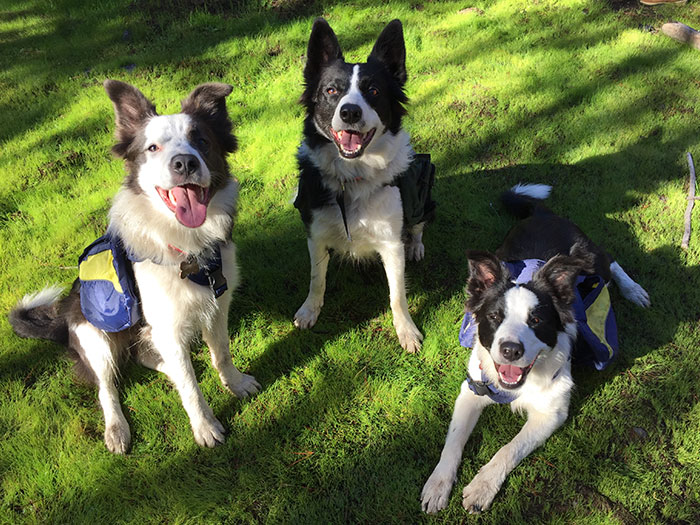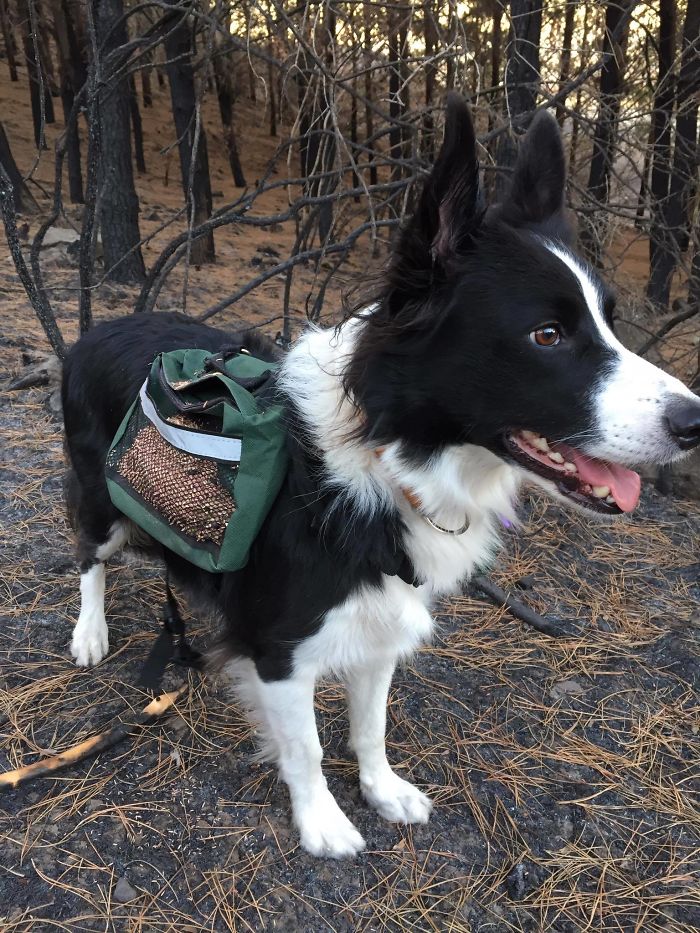And Let Slip the Dogs of … Reforestation?
In 2017, a series of more than 5,000 wildfires tore through the forests of Chile, claiming 11 lives, destroying more than 1,000 buildings, and charring nearly 1.5 million acres (more than 5,700 km2) of land. More than a dozen other nations pledged aid or sent firefighters to help get the fires under control, and ultimately, the flames died out. But what they left behind were once-lush forests turned into ash.
And today, because of two sisters and their three dogs, things are getting a little bit better.
As of 2020, sisters Francisca and Constanza Torres lived in Talca, a city in central Chile that is home to about 250,000 people. (Here’s a map.) A few years prior, they came up with the idea of using their three border collies — Das, Olivia, and Summer, as seen above — to help with the reforestation efforts. The idea was simple. First, the sisters trained their dogs to run around the forest for hours at a time. (Francisca is a professional dog trainer.) Second, they outfitted the dogs with backpacks (which, as seen below via BoredPanda, are more like side bags) filled with seeds but with little holes in the ground. The dogs then ran around the forest, spreading seeds as they went. And when the pets returned to the sisters, they earned their rewards: lots and lots of treats.
On a good day, each of the dogs can cover nearly 20 miles (30 km) and, collectively, they can drop roughly 20 pounds (10 kg) of seeds over that expanse. That’s because, as Green Matters explains, “It turns out that Border Collies are an ideal breed for this specific type of job. Bounding through miles of forest terrain requires not only speed, intelligence, and endurance, but also a willingness to stay focused and not get distracted by wildlife. Border Collies were bred to herd sheep, so they’re not as likely to run after or hurt other animals in the forest.” And of course, the dogs love the adventure, too — for them, it’s a chance to run around aimlessly as fast as they can, and ultimately be awarded for their fun. As Francisca told the BBC in this video, “for them [the dogs], I think it’s more like a field trip than a job.”
The three-dog, two-sister team isn’t going to unwind the impact of the forest fires to a meaningful degree, of course — any gains they make will be incremental and take time to come to fruition. But the idea is a solid one; the dogs can cover an order of magnitude more land than people do, and they get paid snacks. Authorities in other areas impacted by wildfires, such as California and Australia, have contacted the Torres sisters to learn more about what they’ve put into action, in hopes of replicating their successes elsewhere.
Bonus fact: Most dog owners take their dogs for regular walks, ensuring they get enough exercise and an opportunity to do their business. But sometimes, those walks can become tedious when the dog decides to stop walking and start sniffing at random things that they happen to pass. According to the American Kennel Club, dog owners should resist the urge to tug on the leash to get the dog moving again, because it turns out that the stop-to-sniff maneuver contributes a lot to the dog’s mental health. Per the Club, “Fast-paced walks through hectic surroundings can pile on added pressure for fearful dogs. In contrast, meandering sniff sessions on a long leash can lower a dog’s pulse rate and release the mood-boosting chemical dopamine.” Further, “Studies even suggest sniffing makes dogs feel more optimistic. Sniffing offers your pet the chance to make more of their own choices and engage in naturally enriching behaviors.”
From the Archives: Hungry Hungry Hero Dog?: A dog did a good deed. But maybe he caused the need for it, too?


